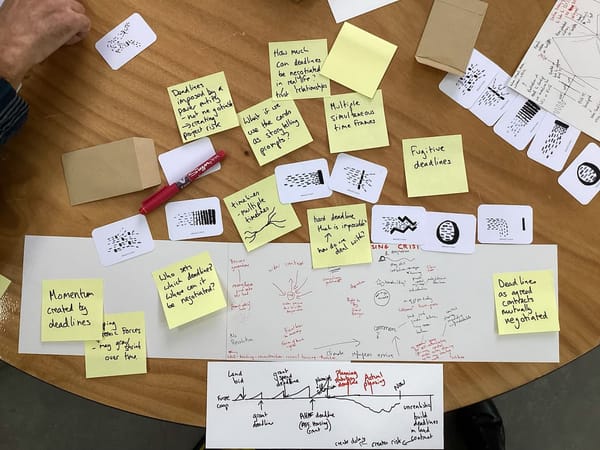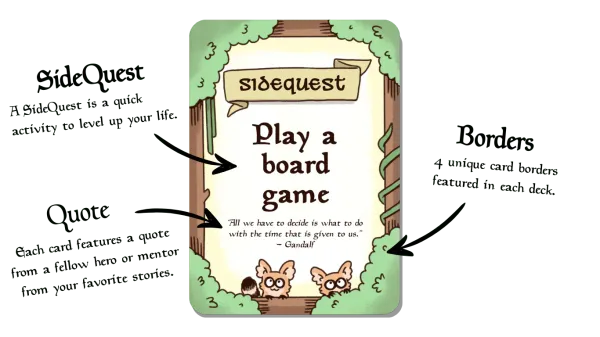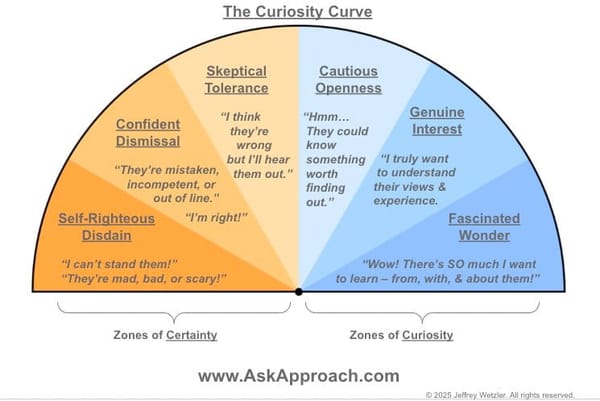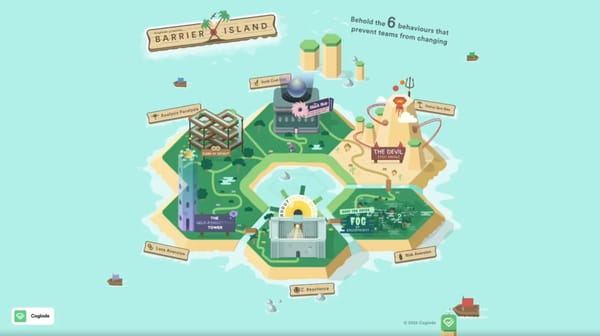№ 70 | MANIFESTO!, 21st Century Economics, CodeCards, The Familiarity-Playfulness Matrix, and AI Safety for Fleshy Humans

MANIFESTO!
MANIFESTO! is a card game “for stimulating and supporting manifesto authoring.” I’m intrigued! And as it happens… 🥁 Julian Hanna—one of the co-creators of the MANIFESTO!—will be presenting at the next Cardstock meetup on May 24th.
If this sounds fascinating, then in addition to the card deck (a free PDF download), check out:
- various publications on the topic of manifestos (especially as a tool for futurist thinking)
- an interview with Julian Hanna: Manifestos are also critiques of the present

Speaking of manifestos… Check out these recently published manifestos:
- Games for Future Solarpunk Manifesto (published as a digital zine, no less!)
- Manifesto for a Humane Web
21st Century Economics
I’m a sucker for these “from… to…” illustrations. But given the source—Doughnut Economics Action Lab—these Seven Ways to Think Like a 21st Century Economist are no doubt based some solid expertise. Also, there’s also a zine version! What’s not to love?

CodeCards
While learning about these CodeCards from 2013 (like Scratch in the physical world?), I came across this Code Cards card game “that teaches you how to code whilst allowing you to go outside, have fun with friends or just take a break.” A cross between Uno and Trivial Pursuit?

The Familiarity - Playfulness Matrix
Choosing the just right Icebreaker (or “Ice Warmer” activity, as Jan Keck refers to them), is something that comes up a lot. I like this proposed 2x2—Strangers or Teams, Serious or Silly—to help guide us to the right activity:

I might add two other considerations: How large is the group? How much time do you have?
AI Safety for Fleshy Humans
Whoohoo! New stuff from Nicky Case (in collaboration with Hack Club). This time round, Nicky is back with a PSA, to help us to understand AI Safety for Fleshy Humans. Nicky bills this as “your one-stop-shop to understand all the core ideas in AI & AI Safety, beyond the cheesy dystopian sci-fi stuff! There's also cat comics.” While not an explorable explanation, this first (of three) posts is nonetheless thoroughly engaging, through a mix of comics, flashcards to test your recall of information, and use of expandable inline footnotes.
![Promotional comic illustration for “AI Safety for Fleshy Humans.” Comic depicts an animal-like robot asking: "Hey kids! Who here wants to learn how to stop the AI takeover? Raise your hands.“ [Next panel shows robot shooting lasers from its eyes]. Final panel reads: “For everyone left: Let's learn how AI can be safe & humane for all!”](https://newsletter.themightymindsclub.com/content/images/2024/05/image-2.png)





